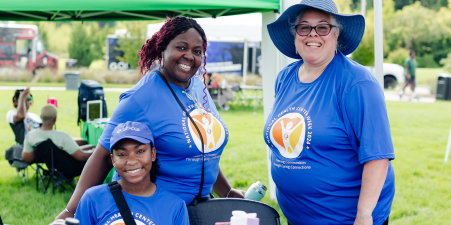Feature story: North Carolina Health Center Gives Moms a Boost with Centering Pregnancy Care Model
Advance Community Health in Raleigh, North Carolina, celebrated its 4th annual End of Summer Block Party in August. Hosted during National Health Center Week, the event raised awareness about the contributions of health centers to the health care landscape. It included food trucks, inflatables, face painting, a live DJ, a laptop raffle, and a giveaway of 500 free backpacks and school supply packs.
